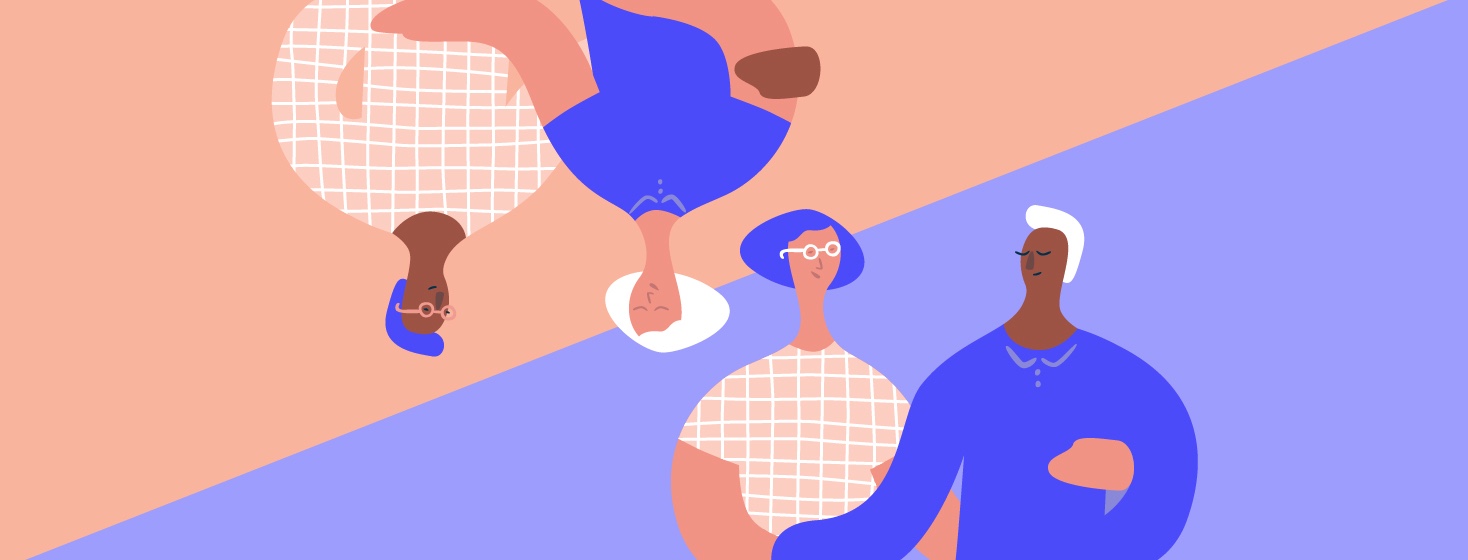Role Reversal
After almost 50 years of marriage, hubby and I were "used to one another." A lot of things went without saying. We had come through a lot of health scares with mutual support and care. We finished one another’s jokes and quickly felt one another’s discomforts.
But myasthenia gravis snuck up on us. I’ll admit, his first complaints of double vision weren’t taken too seriously. He’s a great driver, and I didn’t take his question: "Are there 2 lanes or 4?"as some medical symptom.
It got more scary when the choking started, and doctors tried to explain aspiration pneumonia. But he was strong and smart and even that eased off for awhile.
Losing sleep
The path to diagnosis was long and frustrating, and I had to be a real terror in order to get folks’ attention. I nagged, and researched, called and texted, and nagged again.
Meanwhile I’d lay awake at night listening to the coughing, rearrange the house for falls, and check oxygen and temperature many times a day. (Pneumonia shouldn’t be a persistent symptom, but in our case it was.) Just like when the kids were little, I never really slept. Even when we got good diagnosis, appropriate treatment, and education, the specter of impending crisis hung on for longer than it should have.
Today it’s "almost remission" ... still a few extra lanes when he’s tired, special care to get the meds in on time, caution whenever other medical issues come up.
Tips for caregivers
But we aren’t spring chickens anymore. Just when I think I’ve got this support team thing down, something happens and I realize that I’m human too. The 24/7 awareness that has characterized our household for 5 years can be really wearing. I constantly have to remind myself that caregivers sometimes need care too!
That hit me like a brick a few weeks ago, when I had to remember that I was human too. It seemed appropriate to share a few insights with you all so that you can share it with those who support you.
Maintain a partnership
First and foremost, always keep in mind that even when one partner has more challenges, it is still a partnership. Some of the household responsibilities that used to be his are pretty tough right now, but some of the tasks I used to call mine are pretty easy from his chair.
He’s taken over most of the e-billing, most of the online grocery and other orders, scheduling our weeks. Our weekly "pill sorting" is a sort of group activity. I take the trash out and sweep the garage. I’m still relatively stable on my feet, so anything with a fall risk he doesn’t try. Changing a ceiling light bulb is definitely a duet!
We are gradually finding a network of folks in the neighborhood for small chores that are too risky, require too much strength, or take way too long. No, we aren’t embarrassed to ask!
When hubby’s complex medical appointment schedule clutters the calendar, it’s easy to ignore my own. He’s good at making sure that doesn’t happen. I sit next to him for his e-appointments and he does the same for me.
In general, we make sure that I am not the only one assuming the responsibility for care. That’s not just important for health, but for the general sense that this is still an equal partnership even if we’ve reshuffled the deck of "job cards." I am not a nurse; I’m a partner.
Make time for fun
We make it a point to schedule in fun too. It would be easy to just give in to pressure and get glued to those chairs. In the age of COVID, we don’t do crowded venues but he’s taking me on a date to an outside concert Saturday. I’ll drop him and our lawn chairs off. It’s the sort of thing that is easy to arrange if we make it a priority. If not, the weekend will end up another Gunsmoke marathon.
Prioritize self-care
All that sounds idyllic, but it’s also a grind. When I’ve had an achy day and he needs real TLC, or I realize that I’m on my own for something, I’ll admit I get crabby. Really crabby. "Why didn’t you take your pills on time?" "You know that’s a fall risk!" "Don’t expect me to do everything!" Then of course the guilt creeps in. His exhaustion doesn’t always show, and it’s easy to forget. It’s easy to forget mine, too.
That’s when the little celebrations I mentioned at the top are even more important. Getting into the car and catching some street music, watching the waves, or just blasting old music can change the mood. Since he no longer eats normal meals, I also have to convince myself not to live on frozen dinners. A fancy take-out at my end of the table is ok.
It’s also important every once in awhile to just get away. When a friend asks hubby what he can do, I have learned not to be shy. "Come on over and watch Gunsmoke with him for a couple hours. I need to get out." I have to force myself to remember that I need those breaks just as much as he does.

Join the conversation